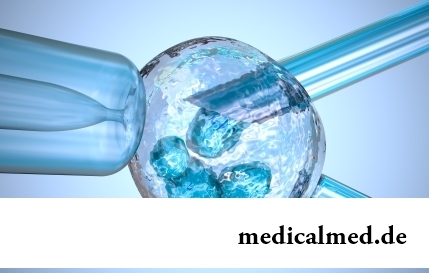





Nephrologist
The nephrologist – the specialist who is engaged in diagnosis, prevention and treatment of diseases of kidneys. The children's nephrologist is engaged in diseases of kidneys at children. Also competence of the children's nephrologist includes treatment of congenital anomalies of development of kidneys.
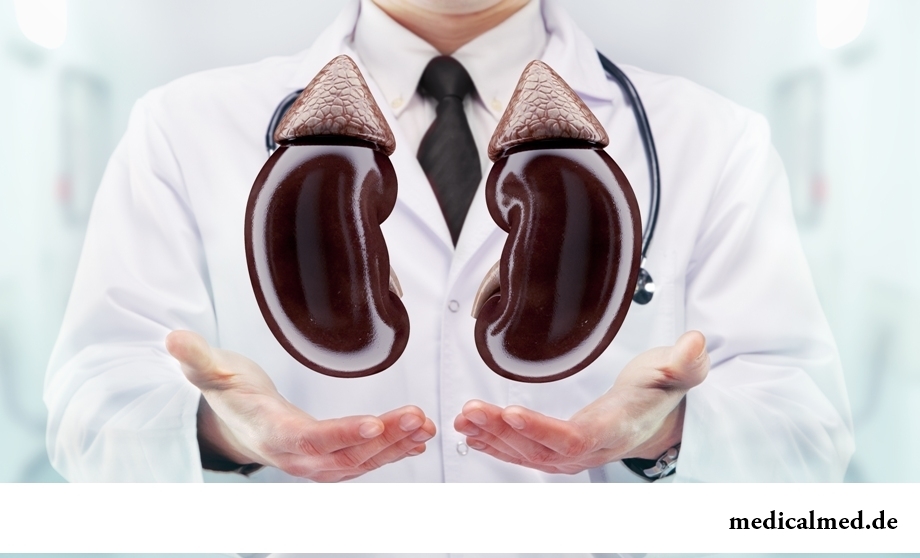
As a rule, to the nephrologist patients come to reception after find changes in analyses – the high content of protein in urine or blood cells, etc.
The doctor the nephrologist carries out out-patient treatment of chronic and acute diseases of kidneys, and also active medicamentous prevention. Depending on a disease, the doctor the nephrologist chooses individual dietary food for the patient, monitors observance of its mode. In particular, it is very important for patients with metabolic disturbances and with reduced function of kidneys.
The bladder, ureters, urethra, kidneys belong to bodies in which the doctor the nephrologist is engaged.
What does the nephrologist treat?
- Renal failure;
- Vascular a nephropathy, damage of kidneys at system vasculites;
- Acute and chronic pyelonephritis and glomerulonephritis;
- Amyloidosis of kidneys;
- Uratny, diabetic nephropathy;
- Damage of kidneys medicines;
- Urolithiasis;
- Chronic intersticial nephrite;
- Secondary glomerulonephritis and lupoid nephrite at patients with other general diseases of connecting fabric.
What the nephrologist children's treats?
First of all, the children's nephrologist studies a homeostasis and its renal regulation at the healthy child at different age, and also the disturbances of a homeostasis caused by the diseases of urinogenital system arising in the course of formation of the person. What the nephrologist at children treats? Treat these diseases:
- Dysplasia of kidneys;
- Children's pyelonephritis and glomerulonephritis;
- Family nephropathy;
- Tubulopatiya;
- Gemolitiko-uremichesky syndrome;
- Anatomic anomalies of bodies of uric system;
- Dizmetabolichesky nephropathy, including urolithiasis;
- Nephrite at a hemorrhagic vasculitis.
When it is necessary to register in reception to the nephrologist?
To the nephrologist it is necessary to register in reception at emergence of the following symptoms of nephrological diseases:
- Renal colic;
- Renal failure;
- Polyuria;
- Anury;
- Existence of tumors;
- Syndrome of an acute inflammation of kidneys;
- Arterial hypertension;
- Availability of protein or blood in urine;
- Oliguria.
When it is necessary to visit the children's nephrologist?
The nephrologist needs to see a doctor in the following cases:
- Complaints of the child to urodynias;
- Deviations in analyses of urine;
- Too frequent urination;
- When at ultrasonography diagnosis of a bladder and kidneys aberrations are found.
What analyses the neurologist will demand?
The nephrologist has the right to demand from the patient of delivery of the following analyses necessary for specification of the diagnosis:
- Biochemical analysis of blood on determination of level of uric acid, creatinine and urea;
- Triglycerides;
- Cholesterol;
- Crops of urine on flora;
- Research on Nechiporenko;
- Electrolytes;
- Daily urine;
- Zimnitsky and Reberg's tests;
- Arterial pressure in dynamics.
The children's nephrologist in addition can demand:
- Hromotsistoskopiya;
- Research of functional capacity of kidneys;
- The analysis of allocations from an urethra (an ejaculate, a prostate secret).
What types of diagnoses are carried out by the doctor the nephrologist?
- Biopsy and scanning of kidneys;
- Intravenous urography;
- ECG;
- Retrograde piyelografiya;
- Pneumoperitoneum;
- ULTRASONOGRAPHY;
- Survey X-ray analysis of kidneys;
- Radio isotope X-ray analysis.
Councils of the nephrologist
Councils of the nephrologist on food for the people having problems with kidneys are included below:
- Limit salt consumption as salt causes thirst and promotes a liquid delay in an organism. It leads to increase in pressure and emergence of hypostases. For people with sore kidneys the day norm of salt makes no more than 7 g;
- To reduce concentration in an organism of phosphorus and potassium, it is necessary to exclude from a diet all fried, dried fruits, canned food and vegetables. Reduce amount of the consumed fruit (except pears and apples), and also dairy products;
- The standard daily rate of protein should not exceed 300 g. It is more preferable to use the fowl and mutton steamed;
- It is necessary to exclude from a diet fish, the bean, containing large amounts of protein and rich broths;
- At a diet there shall be porridges, macaroni, kissels, olive oil and honey. It is possible to use coffee in small amounts;
- Pressure should be measured several times a day. Consider that not all drugs from pressure can be used at diseases of kidneys therefore before their use consult with the nephrologist;
- Each three months it is necessary to go to reception to the nephrologist and to make blood tests and urine.
Councils of the children's nephrologist
Is very important in time to reveal pathology at the child and to begin the corresponding treatment. It will help to avoid many serious complications. For this purpose parents have to:
- To watch closely a condition of the child and to note possible symptoms of a disease;
- Not to allow overcooling of the child;
- Not to neglect routine inspections at the pediatrician;
- As long as possible to nurse the child as it protects the child from an intestinal dysbiosis, so, less disease-producing microbes get to an organism;
- In case of fervescence in the absence of other symptoms of cold it is necessary to call the doctor in the child urgently.
In Great Britain there is a law according to which the surgeon can refuse to do to the patient operation if he smokes or has excess weight. The person has to refuse addictions, and then, perhaps, he will not need an operative measure.

More than a half of the married couples which faced prostatitis – leave. The new broadcast "Female View of Prostatitis" will help to learn...
Section: Articles about health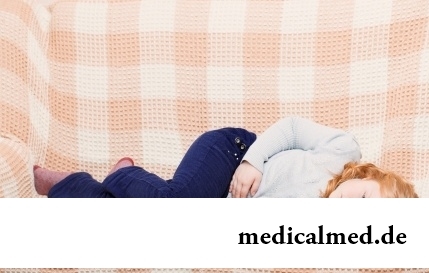
Epilepsy is one of widespread neurologic diseases. Parents, whose children suffer from this illness, should face rumors and delusions, many of which remained since the Middle Ages....
Section: Articles about health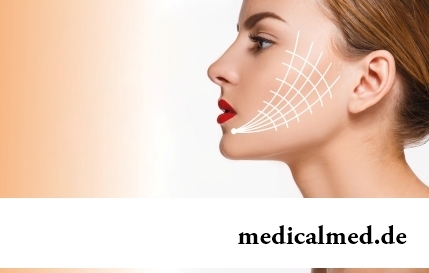
Aging — natural and inevitable process. Over time our skin loses elasticity, on it saggings are formed, the face form loses former clearness. The procedure of nitevy lifting (nitevy tightening) can successfully solve this problem. In order that it is better to get acquainted with this popular procedure, we will tell you 6 cognitive facts about it....
Section: Articles about health
During foot walks blood moves on vessels more actively and one and all bodies are supplied with a large amount of oxygen. N...
Section: Slideshow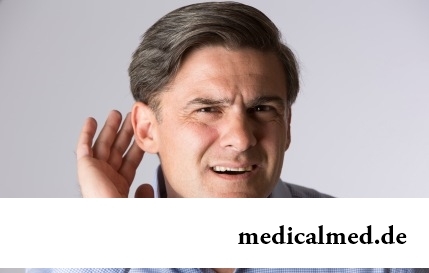
Partial and the more so full loss of hearing significantly reduces quality of life. Difficulties with communication lead to loneliness and isolation. The person who badly hears experiences difficulties with social and professional implementation, quite often has problems in...
Section: Articles about health
The way of life of people promptly changes from year to year: if about ten years ago the personal computer was not in each family, then today already very few people do without this device. Certainly, and children master the computer at full speed: they not only play on it games, but also study, and write school works, and search for necessary information....
Section: Articles about health
Healthy lifestyle today in fashion, and many parents think of that the child from the early childhood played sports. To a Torah...
Section: Articles about health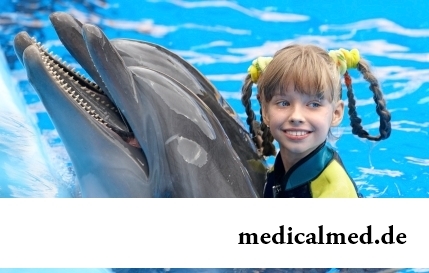
On health of the person physicians know about salutary action of animals long ago. About 7 thousand years ago great Hippocrates recommended to the patients riding walks for strengthening of a nervous system and increase in vitality....
Section: Articles about health
Each person has easy indispositions which he transfers "standing", trying not to ask for medical care. Arguments at the same time are adduced same: "it is a trifle, itself will pass", "I have too many important issues", "there are no wish to spend time for doctors", etc. At good shape of health, normal working capacity and lack of suspiciousness dislike for complaints to such problems is quite natural. It is not the most correct, but very widespread type of behavior. I am glad...
Section: Articles about health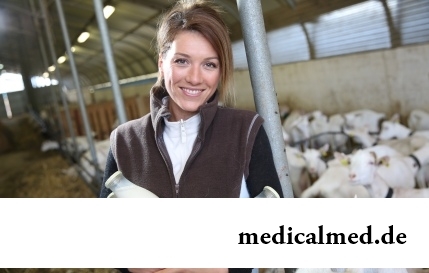
A little more than a century ago goat milk was a traditional food stuff of most of Russians. Unfortunately, today on tables...
Section: Articles about health
Any of us is not insured from a heavy illness of the loved one. Happens and so that someone from family members becomes the bed patient, and remains in such state for a long time. It extremely suppresses both the most injured, and all it to...
Section: Articles about health
Impossibility to conceive the child – a trouble of many Russian families. During quite long time was considered that main "culprits" of troubles such are women. Modern physicians claim that the situation is different: about a half of failures in attempts of reproduction are connected with male infertility....
Section: Articles about health
The depression not without reason is considered one their main troubles of our century: for scientific and technical progress, acceleration of rate of life and a surplus...
Section: Articles about health
The medicine promptly develops, and the fact that else quite recently it seemed by miracle can now. We are not surprised any more to the fact that people with artificial joints and extremities can play sports, organ transplantation became a routine, and the latest cancer medicine п...
Section: Articles about health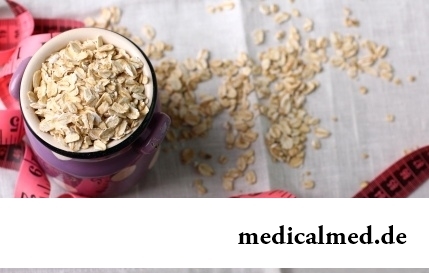
The list of stereotypes of which, apparently, all know strongly includes following: British surely eat porridge for breakfast. Perhaps, not all modern residents of Britain arrive quite so, but for those from them which continue to follow this tradition, it is possible to be glad sincerely: oat flakes are a product which regular use not only helps the person to keep force and beauty long. Porridge in a special way influences an organism, protecting it from seriousness...
Section: Articles about health
Household skills which to us so diligently imparted in the childhood it appears, not always bring only benefit. According to result...
Section: Articles about health
In consciousness of our many compatriots idea that folk remedies if are no more effective, than medicinal "chemistry" strongly took roots, then are precisely less harmful. Unfortunately, it is not always fair: some receptions treating...
Section: Articles about health
Antibiotics - - it is possible to call the chemical compounds suppressing growth of bacteria the break in the field of medicine which allowed to save mankind from many diseases incurable earlier: tuberculosis, plague, syphilis and many others. The contribution of drugs to rescue of people from epidemics of dangerous infections is huge, however at careless use antibiotics are capable to cause to an organism serious damage. Negative action can be shown in the form of easing of immunity, disturbance of balance of microflora in кишеч...
Section: Articles about health
New year, wedding, birthday, office party – an occasion to drink at the Russian person will always be. How to reduce a negative impact...
Section: Articles about health
According to World Health Organization, every third inhabitant of Earth has excess weight, and every tenth has obesity. The reason of this phenomenon, according to specialists, roots in one not very comforting fact: most of people consume much...
Section: Articles about health
Dogrose – one of the most widespread adornment and medicinal plants growing practically in all territory of our country. To most of Russians it is a beautiful bush it is known, first of all, as a source of fruits, extremely vitamin-rich. However curative properties of a dogrose are not limited to it at all. About how still it is possible to use a plant in the medical purposes, we will tell today....
Section: Articles about health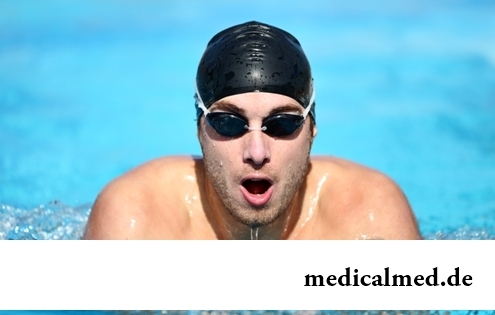
The advantage of swimming for the person is so high that this sport is not only the most popular, but also is widely applied in copper...
Section: Slideshow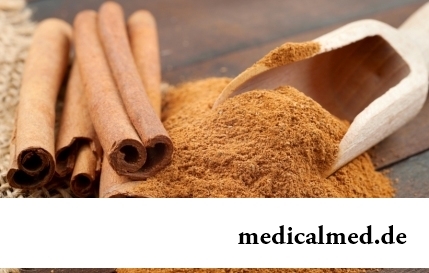
Ayurveda - the most ancient tselitelsky practice which came to us from India. It represents the doctrine about maintenance of physical, psychological and moral health of the person by means of the complex of procedures including a diet, cleaning of an organism, respiratory упр...
Section: Articles about health
Shops of household appliances offer us the huge choice of various devices for the house. Whether there are among this abundance devices which not only facilitate house work, but also help to keep health of the person? Of course, and we will tell about them today....
Section: Articles about health
Obesity is called by a disease of 21 centuries, for the last 100 years by the number of the people suffering from excess body weight, considerably increased...
Section: Articles about health
Separate food - the system of meal based on digestion physiology which is carried to improvement methods. According to nutritionists, the separate use of the carbohydrate and proteinaceous products demanding different conditions of assimilation helps to get rid from Bol...
Section: Articles about health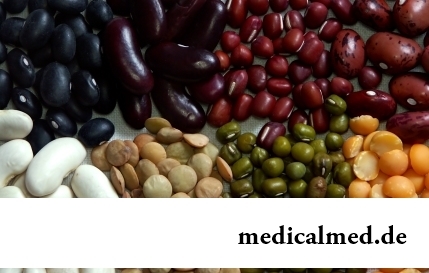
Ability of an organism to resist to adverse environmental factors (to impact of temperature drops, humidity and pressure, to the attacks of causative organisms, etc.) directly depends on what the person eats. Business here not only in that cells of a body received a necessary set of nutrients, vitamins and microelements. Scientists established that such components which are capable to influence negatively immune system, in connection with also are a part of foodstuff...
Section: Articles about health
